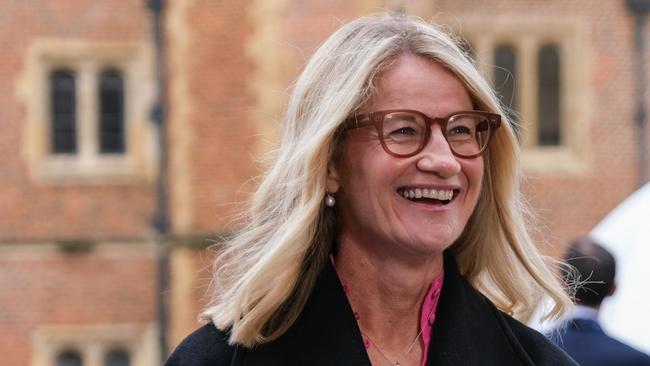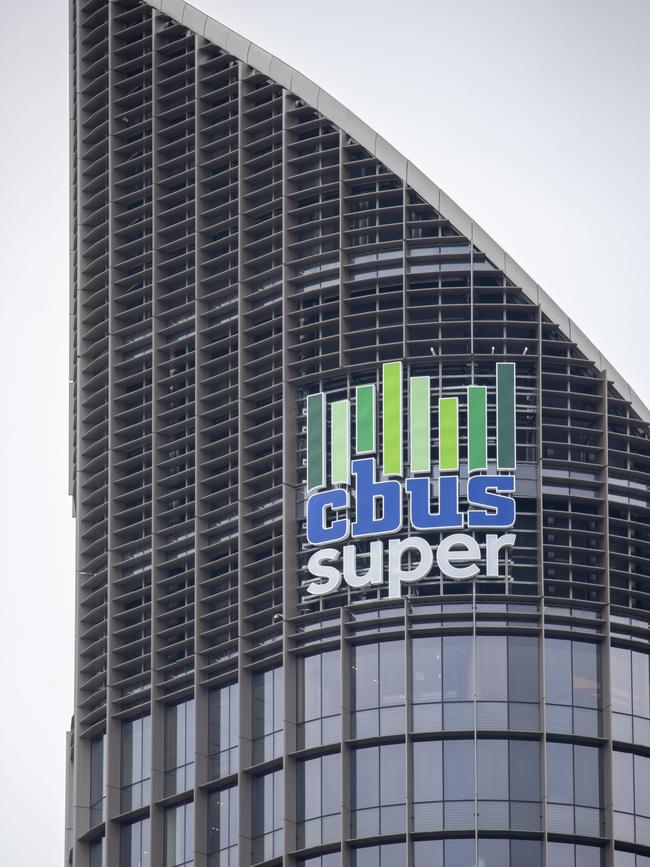Super funds claim handling complaints soar with AustralianSuper worst offender
More than 7300 super fund complaints were sent to the ombudsman in the last financial year, with the $330bn megafund AustralianSuper the worst offender.

Super fund complaints around claims handling have more than tripled since 2019, with death benefit and insurance claims the number one grievance escalated to the complaints ombudsman.
More than 7300 super fund complaints were sent to the Australian Financial Complaints Ombudsman in the 2024 financial year, with death benefit, total and permanent disability and income protection complaints accounting for around 40 per cent of all member grievances for funds that received a minimum of four complaints.
Has your super fund delayed processing your claim? Get in touch confidentially with odowdc@theaustralian.com.au
Of the complaints received in 2024, 1730 related to delays in claims handling, according to AFCA data. This was a dramatic rise from the 463 complaints on the same issue the ombudsman received in its first full year of operation to mid-2019, though down slightly on the 1738 complaints received in 2023.
Members of the nation’s largest super fund, the $330bn megafund AustralianSuper, raised more than 1500 complaints with the ombudsman last financial year, the AFCA revealed on Thursday.
This was the most of any super fund and three times higher than the second-worst performer on the complaints front, Australian Retirement Trust.
More than $3m was paid out to AustralianSuper members following the AFCA complaints. Of the complaints taken forward by the ombudsman against the fund, 16 per cent related to insurance and 13 per cent to death benefits.

ART, the country’s second-largest fund, was the worst for member complaints related to group insurance and death benefits: of the complaints AFCA pursued with the fund, 41 per cent related to group insurance, with a further 8 per cent related to death benefits. The rest of the complaints centred around account administration.
A spokesperson for ART said: “ART is focused on paying claims quickly and works with claimants to make this happen.
“The time to complete payment for a member’s claim varies depending on the complexity of the member’s individual circumstances and the type of claim. When the claim has been assessed and all requirements are received, we pay the claim within 10 days.”
Cbus, currently being sued by the financial regulator over alleged mishandling of $20m in insurance money owed to grieving families and people with disabilities, was the third-highest complained-about fund last year, notching up just shy of 500 complaints, close to half of which related to claims delays.
Rounding out the top five for most super fund complaints were Mercer Super and Aware Super.
Aware Super chief executive Deanne Stewart told The Australian the fund had been focused on streamlining its systems to drive better member outcomes.
“We made the decision three years ago to bring our previously outsourced administration in-house,” Ms Stewart said.
“Aware Super is the only industry fund to have completed the insourcing of administration and digital transformation. While we’ve made significant progress on this front, we remain committed to continually improving the support and solutions we provide our members.”
The new figures from AFCA come days after the Australian Securities and Investments Commission launched legal action against Cbus, the $94bn industry super fund for the construction industry, over delays in claims handling.

ASIC alleges Cbus did not take appropriate action when it was warned about the massive failures in processing claims and that people to this day may be waiting for payouts. The fund has put the blame for the delays on its administrator.
The scandal now threatens to push past Cbus into the other funds, with regulators probing whether delays to paying out death and insurance claims are more widespread across the industry.
At this stage, Cbus is the only fund facing allegations of massive delays in paying out claims. If the allegations are proven in court, the penalties could be significant.
Garry Weaven, key founder of the industry fund movement and former chair of IFM Investors, said regulators needed to be focused on the overall performance of super funds, as he pointed to issues in the industry with outsourcing administration services.
“There is still so much appalling practice going on in parts of the financial services industry – I would have thought they would have much more on their hands to do than focus on this,” he said.
“I think it’s been clear that a number of the big funds have been struggling with their outsourced administration arrangements for sometime.
“I don’t think those services have been adequate. This is one of the consequences of those cases.”
Insignia chief executive Scott Hartley declined to comment specifically on Cbus, but told The Australian “those (regulatory) expectations are not unreasonable”.
“I do think that ASIC in particular appear to be more mobilised around these issues and we … are certainly aware of that and are working hard to close any gaps we currently have to ensure that we meet those expectations,” he said.
Insignia, formerly IOOF, was caught up in the poor treatment of customers alongside the big banks operating in the wealth space during the Hayne royal commission in 2018. That prompted huge remediation programs and immense regulatory scrutiny at the time.
AMP group executive superannuation and investments, Melinda Howes, said she welcomed regulatory oversight to hold the industry to high standards.
“Last year AMP Super completed a comprehensive review of our insurance offer for members, appointing TAL as our new default insurer. The quality, speed and track record of TAL’s claims process was a key factor in their appointment,” she said.
Additional reporting: Angelica Snowden
Has your super fund delayed paying out your claim? Get in touch: odowdc@theaustralian.com.au





To join the conversation, please log in. Don't have an account? Register
Join the conversation, you are commenting as Logout